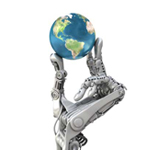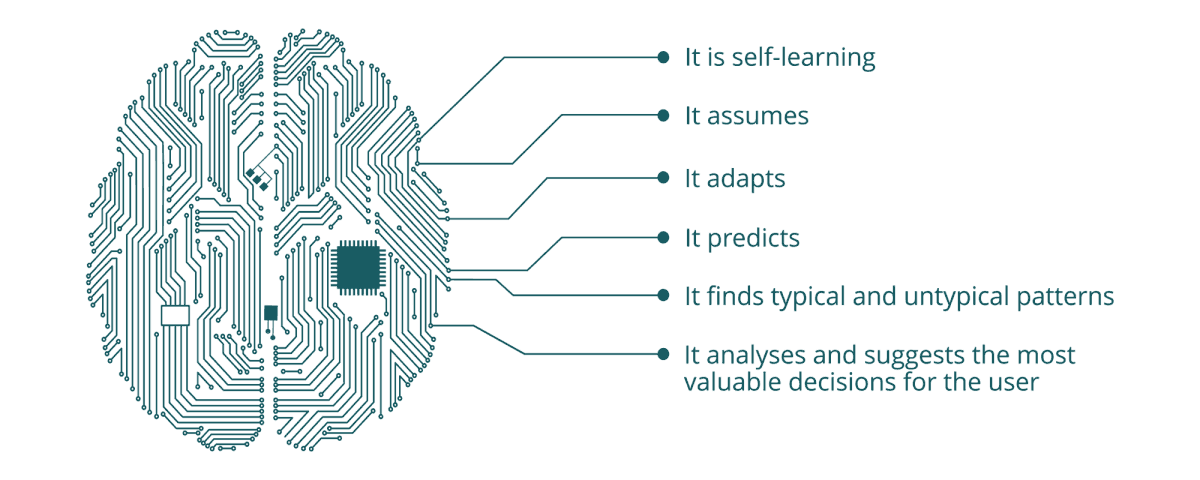 AI or Artificial Intelligence is seen as the future of technology. Not because it's capable of doing computation better than the current tech, it's because it can do what any previous tech can't do. And that is taking computing automation to the next level.
AI or Artificial Intelligence is seen as the future of technology. Not because it's capable of doing computation better than the current tech, it's because it can do what any previous tech can't do. And that is taking computing automation to the next level.
A theory has explained that free will is just a series of collective moments that interact between cause and effect. Humans were the beings who can master this ability, while computers are created to think by the way they're designed. However, over time with many trials and errors, humans have created complex pieces of technologies that can think similar to human beings.
Neural processing, AI, deep learning. They have many things in common. In nature, humans are "designed" based on how they are. For example, we create things to solve problems, we answers questions because we were curious. Solving problems is like humans playing with the true and false parameters.
As human advances, we can develop machines to find the truth from a meaning. Not just from how they were designed or coded. These machines, despite still young and powerless on themselves, they are marking the first wave or the future where humans will be able to interact with a non-human and non-living beings in better ways than ever before.
Google and Facebook are two widely popular and powerful tech companies that trying to deliver this potential to reality. To the very least, Google wants to create the Android of the AI world, while Facebook wants to make deep learning algorithm better with its specifically designed server.
Over the past few years, both deep learning and AI algorithms have achieved a tremendous leap. The once was impossible is slowly becoming a reality. With AI and deep learning, computers can now recognize faces, answer questions like human beings, tell different things apart. Or to be more specific, computers are becoming more human.
Google's AI has been powering many parts of the company's services, from its Search to Maps and many more. Facebook on the other hand, has used its deep learning capability to recognize people's faces in photos to delivering the uniquely tailored News Feed and its virtual assistant M.
Both Google and Facebook aren't shy in its AI-related system, and wants to share their achievements to the world so more people can use it. Google has open-sourced TensorFlow while Facebook has open-sourced its deep learning server called Big Sur.
There is one main reason why the two companies that are both rivals, were giving away their designs. And that is scaling.

The Future Is To Scale
Both Google and Facebook are holding mass amount of data, but they only store a fraction of the potential data available to train these AI algorithms. By open-sourcing their algorithms, Facebook and Google get all the benefits of training algorithms using other people's data and use cases without having to pay for anything.
Since information inside those data can make AI smarter, more is never enough.
Google has decided to license Android through open-source has led the OS to become one of the most popular operating system in the world. It didn't wake Google long to make Android comparable to Apple's iOS. By open-sourcing the project, Google was benefited from the rapid growth of mobile internet devices that are running Android and using Google's services.
A similar strategy is commenced by Google when it open-sourced its AI algorithms. With more data to feed on, Google can expect that its algorithm can be trained with more variables, making it scale up significantly faster. While the AI can get better in time, the more it' reliable will also make it more efficient in terms of hardware cost designs.
The Power Against The Loss
Open-sourcing projects can significantly increase the likelihood of improvements. Since other companies, scientists, people and researchers are using them, AI that hunger for data can feed on whatever is fed to it. The more capable the AI and its deep learning capability to reach the desire threshold, it'll benefit anyone who is using it. And that is not to mention Google and Facebook.
As more powerful mobile hardware and new gadgets are introduced along the way, both Google and Facebook can expect a revolution of technology in which the future relies more on tech rather than humans. As something new and trending, AI and deep learning with their potentials are the billion-dollar stock opportunity with plenty room for investors.
So what's the drawback from all those benefits? Similar to any other open-source project, Google's TensorFlow and Facebook's Big Sur are expected to have the same disadvantages.
Open source is like giving something away for free. The project can be modified by anybody and then redistributed because the codes are supposed to be freely available. Because they are supposed to be free, open-source projects tend to evolve more in line with developers' needs and wishes, more than the needs of the end users. And since open system means that there are many people identifying bugs and fixing them, it also means that malicious users can potentially exploit any vulnerabilities to benefit their own.
Another drawback of open-sourcing is its fragmentation. As more people contribute to the project, the lesser the grip the owner has on it. The cause of this is open-source project tends to be independent, and isn't tied to anyone. This fragmentation is what made Android to continue to grow, and also made Google to lost control of it.
Those disadvantages don't usually apply for commercial projects which are usually closed-source.
The New Change In An Era
Before Google and Facebook open-sourced their projects, big multinational companies like IBM and Sun Microsystems were backing the open-source project movements because there are no great financial stakes involved. Their strategy in making open-source projects were once mostly driven by motivation, and that motivation mostly originates from a prevalent anti-Microsoft feeling.
Despite open-sourcing projects still has no clear-cut discipline in the field and everything is emotion driven, Google and Facebook are advancing in a field where they have less to no other potentially capable competitors.
And because technology is advancing a lot faster than most people have expected, scaling up is a must because without it, either hardware of its software won't mutually benefit one another.
AI and deep learning use GPU a lot more intensively than they use CPU for processing. The reason for this is because GPUs provide a greater efficiency if compare to CPU's way of processing. This enables computer to process a lot more requests at a time. The way it works is similar to the human brain, and training AI is a big paradigm change on how people are training computers.
Because Google and Facebok are both open-sourcing their projects, this is a good news for specialized manufacturers such as Nvidia.
As AI is starting to play a bigger role in the global tech in overall, the move by Google and Facebook can be expected to change the tech's overall trend, and how people will use technology to aid their lives in the future.
Further reading: Google and Facebook: When Computers Dream, Humans Are Fooled